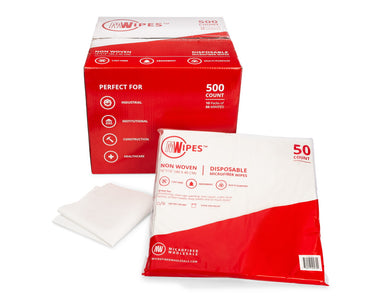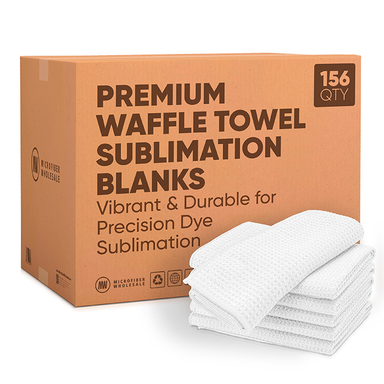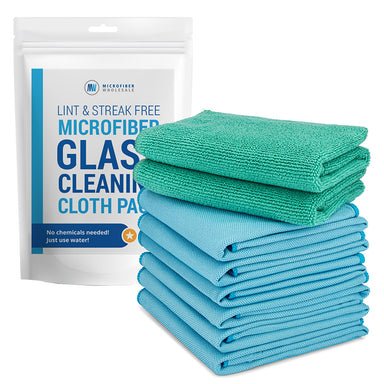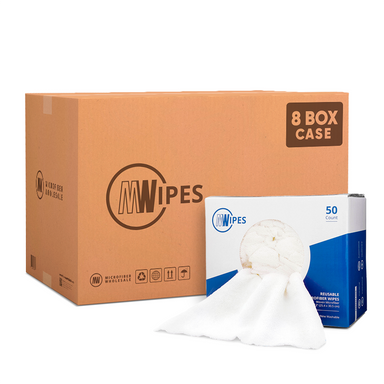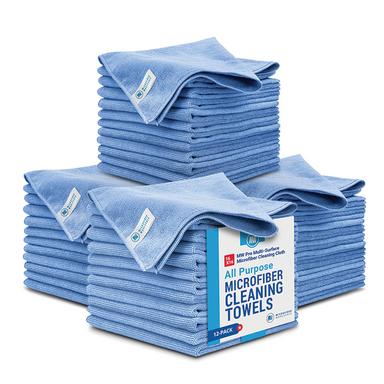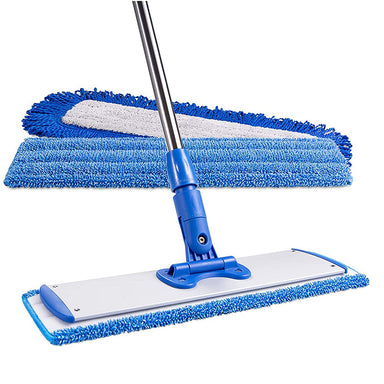Four Effective Ways to Clean Shower Glass
After learning about the most common soils and the chemistry behind what will remove each one the best, it’s easier to tackle the task of cleaning shower glass. Now, here are four effective ways professional cleaners get the job done efficiently.
Vinegar & Detergent Solution
Vinegar is a great all-purpose cleaner and is safe to use in the home around pets and little ones.
Mix dish detergent, cleaning vinegar, and water (ratio of 1:1:2) in a spray bottle and spray it liberally onto dry shower glass. Allow it to sit for five minutes.
The acidity of the vinegar will dissolve calcium and other minerals found in hard water stains as well as kill any mold and bacteria. While the detergent will help loosen up any soils.
Using a scrubbing sponge or brush, work in circular motions from the bottom up, scrubbing away any build-up from the surface.
Lemon Juice & Detergent Solution
Like vinegar, lemons are naturally acidic and have antibacterial and antifungal properties, making them a great cleaning agent for hard water, mildew, and even mold.
In a spray bottle, mix one part dish detergent with four parts water. Then cut a lemon in half and rub it over the shower glass. You’ll need a few lemons for one shower.
Allow it to sit for several minutes to allow the citric acid from the lemon to break down soils. Then spray your detergent solution liberally and scrub it all down with a scrubbing sponge or brush.
Baking Soda Paste
Another all-purpose product that has been in use for decades and is a kitchen staple in most homes is baking soda. Create a paste using baking soda and water and paint it onto the shower glass.
Scrub the paste into the surface using a tool like a scrubbing sponge, paying particular attention to problematic areas. Then allow the paste to sit for a few minutes so it has time to work its magic.
When scrubbing the paste again to remove it, work in sections. The abrasive texture of the baking soda will buff away any hard soils.
You can also use a detergent spray (the one from the previous step) afterward to remove any remaining residue.
Commercial Cleaners
If all else fails, you can always use a commercial shower glass cleaner. There are hundreds of options out there, and some of them don’t work very well. But here are some highly-rated options:
Just be sure to read the instructions and leave the cleaner on for the recommended time before scrubbing. Then use a scrubbing sponge, brush, or ultra-fine steel wool to scrub the shower glass.
If the shower glass still has any stuck-on residue, you can try using a scraper, but be careful not to scratch the glass.
We also recommend that you wear a ventilated face mask when working with commercial chemicals, as the fumes can be toxic.
Always dry the glass off with a shower squeegee or microfiber towel once you’re done with either of these techniques.
